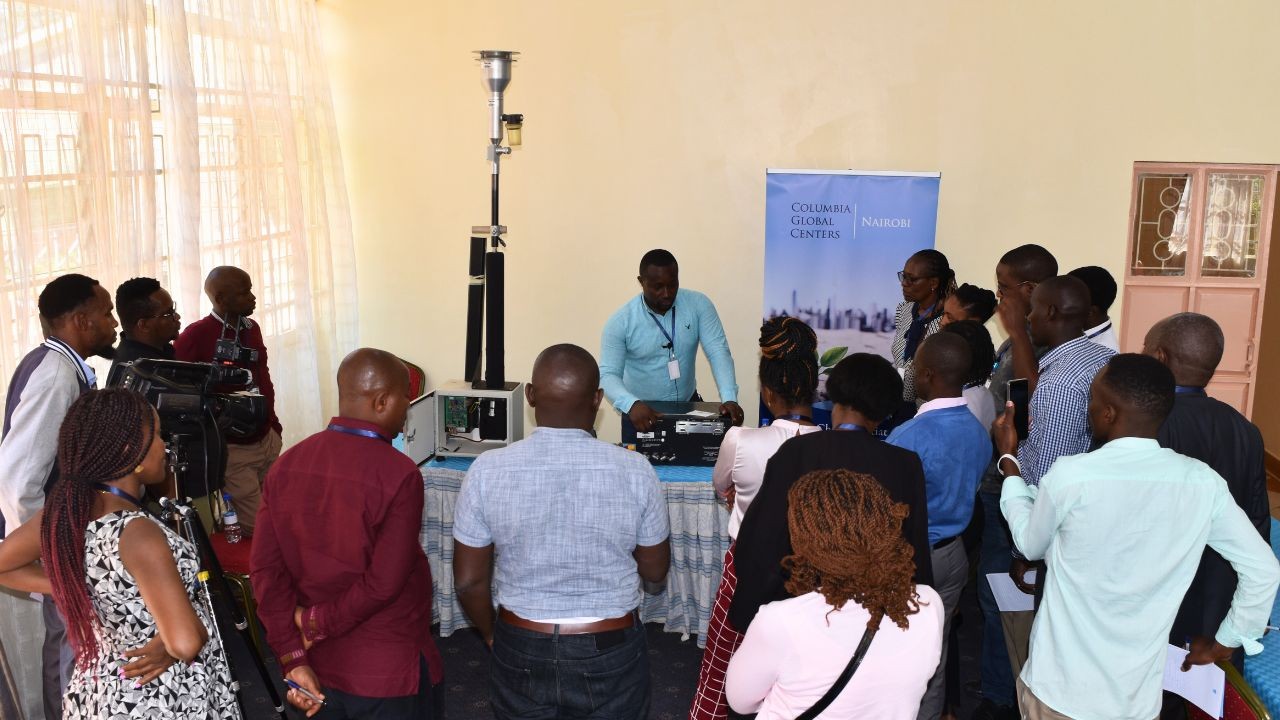In pursuit of these goals, the Nairobi Center supported Professor Dan Westervelt from Columbia University’s Lamont Doherty Earth Observatory in organizing the East Africa Air Quality Management Training Workshop, with Kenyatta University as the leading regional collaborator. Keynote speakers, including Dr. James Koske, the Executive Dean of the School Of Agriculture And Environmental Sciences, noted that the training workshop was making strides toward bridging gaps in the air quality management space in East Africa by providing scientific evidence-based data from the equipment Kenyatta University in collaboration with Columbia University received from the United States and the Kenya Governments. Judy Ndichu, representing USAID, articulated a vision in which the U.S. Government and its program partners would collaboratively develop a practical, field-tested playbook to facilitate coordinated efforts in raising awareness, identifying air quality priorities, and harnessing the partnership of the U.S. Government. Dr. Murugi Ndirangu, the Director of CGC | Nairobi, stressed the workshop's necessity, emphasizing that air pollution respects no borders and can traverse continents, impacting local populations and global communities. Dr. Ndirangu underscored the critical need for collaborative endeavors to address this global challenge.
The training workshop drew participants from Kenya, Rwanda, and Uganda, offering a comprehensive seven-day program. In addition to engaging in air quality demonstrations and simulations, participants delved into a wide range of study topics, including:
- Air Quality Science 101
- Emissions inventory development in Nairobi
- Characterizing emissions from African biomass fuels: Optical properties and Radiative Impact
- Characterizing emissions from African biomass fuels: Chemical composition and toxicity studies
- GEOHealth East Africa

